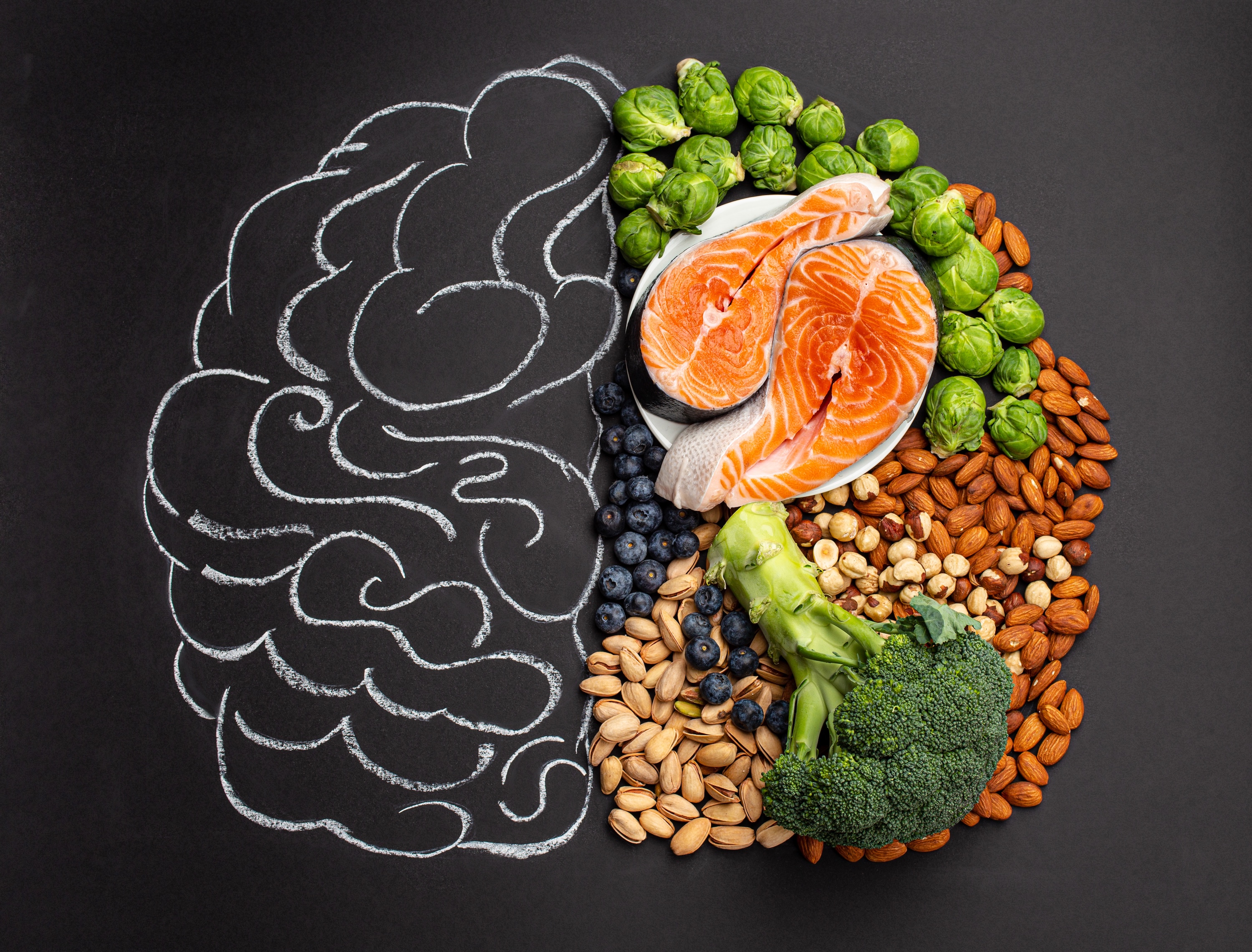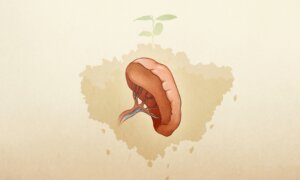Health Viewpoints
Have you ever considered that your diet might be the missing piece in your mental health journey?
Research from Harvard University indicates that an unhealthy diet could increase the risk of depression. In other words, the food you eat every day is closely intertwined with your emotions, energy levels, and even the way you think.
This article combines modern research, clinical cases, and the wisdom of traditional Chinese medicine (TCM) to help you understand the effects of diet on mental health and provide you with practical, healthy strategies you can adopt.
How Diet Affects Mental Health
Though the brain makes up only a small fraction of body weight, it consumes a significant amount of energy and nutrients to function properly. In today’s fast-paced world, many rely on processed foods, sugary snacks, and caffeine to get through the day. However, this dietary pattern is closely linked to anxiety, depression, mood swings, and even cognitive decline.
The biggest challenge is that many modern foods offer “empty calories”—rich in processed ingredients and sugar yet lacking in essential nutrition. Studies show that frequent fast food consumption is associated with symptoms of depression and anxiety, especially in younger people. On the other hand, a diet rich in natural foods and unprocessed meats is shown to enhance emotional well-being and mental stability.
Case Study: Sarah’s Journey
At our clinic, we often observe the strong connection between diet and overall health. For instance, one patient, Sarah, a professional woman in her 30s, frequently experienced anxiety and low energy. Her diet mainly consisted of white bread and sugary drinks, with minimal protein or vegetables. Initially, she believed her issues were purely psychological, but a closer analysis revealed a direct link between her eating habits and her emotional state.
After a detailed assessment, we recommended that Sarah adjust her diet. This included supplementing her diet with high-quality fish oil to boost her omega-3 intake, increasing her consumption of leafy greens and lentils to enhance her vitamin B levels, and replacing sugary snacks with nuts and seeds for improved magnesium intake and sustained energy. After three months, Sarah reported a significant reduction in anxiety, an improved sense of calm and focus, and increased energy for her work.
Key Nutrients for Mental Health
Modern science has proven that certain nutrients are essential for mental health:
Omega-3 Fatty Acids
These are the building blocks of brain cells and help reduce inflammation. Foods such as salmon and walnuts are rich sources of omega-3 fatty acids.
B Vitamins
Vitamins B6, B12, and B9 (folate) are crucial for neurotransmitter production. A deficiency may lead to irritability, fatigue, and depression.
Magnesium
Known as a natural relaxant, magnesium helps alleviate stress and promote better sleep. Foods rich in magnesium include nuts, seeds, and dark chocolate.
Probiotics
About 90 percent of the “happiness hormone”
serotonin is produced in the gut. Fermented foods such as yogurt, pickled vegetables, and kefir support gut health by providing beneficial probiotics, which, in turn, influence mood and brain function.
Small dietary changes can lead to significant effects on mental health, often surpassing what medications can achieve. A study published in The American Journal of Clinical Nutrition found that male participants who followed a Mediterranean diet experienced “significant” improvements in depressive symptoms after just 12 weeks.
TCM Perspective on Diet and Mental Health
TCM has long emphasized the role of food therapy, positing that diet can have a comprehensive effect on both physical and mental health. According to TCM, qi (energy) plays a central role in well-being. When the flow of qi is obstructed, it can manifest in psychological issues, such as anxiety and depression.
Spleen Qi Deficiency
In TCM, the “spleen” refers not just to the organ but to the overall function of the digestive system. When the spleen’s energy is weak, nutrient absorption and energy conversion are compromised, leading to emotional distress. This condition is often seen in people who overthink or worry. To foster the spleen’s function, it is recommended to eat easily digestible, warming foods, such as vegetable porridge, sweet potatoes, and pumpkins.
One of my patients, Michael, experienced insomnia and anxiety due to work-related stress. We adjusted his diet by adding spleen-supporting porridge and dried longan fruit, which has calming properties. In combination with acupuncture treatment, his condition showed significant improvement within a few weeks.
Heart Yin Deficiency
Heart Yin deficiency refers to a lack of nourishing fluids in the heart, affecting its functionality. Yin fluids, such as blood and tissue fluids, have a moisturizing and nourishing role in the body. People—particularly women undergoing menopause—who experience this deficiency are prone to insomnia and anxiety. It is recommended to eat lotus seeds, goji berries, and red dates, as they help calm the mind and nourish the heart.
Research has found that goji berry extract may regulate the gut-liver-brain axis in mice, and influence gut microbiota and bile acid metabolism (a vital process for proper digestion, fat absorption, and overall metabolic health). This, in turn, helps improve neuroinflammation and cognitive impairments.
TCM emphasizes nourishing qi and blood, using natural foods to balance the body and emotions. Eating more leafy greens, legumes, and similar foods has been linked to enhanced emotional well-being. Research has shown that increasing the intake of fruits and vegetables is linked to improved happiness, life satisfaction, and overall physical and mental health.
The overlap between modern science and traditional wisdom in this area is truly remarkable. Both agree that a balanced and nutrient-rich diet is the foundation of good mental health.
Practical Tips for Dietary Improvement
Start improving your mental health by making dietary adjustments. Here are some simple and actionable suggestions.
Eat More Natural Foods: Incorporate plenty of vegetables, fruits, whole grains, lean meats, and eggs into your diet. Embrace TCM principles by adding warming foods such as ginger tea or vegetable porridge when feeling fatigued or anxious.
Boost Key Nutrients: Aim to eat fish high in omega-3 at least twice a week, or include probiotic-rich foods, such as yogurt, daily.
Avoid Junk Food: Limit processed foods and sugary snacks, as they can cause significant mood swings.
Be Patient: Focus on consistent, gradual changes. Small, sustained efforts over time can lead to significant benefits.
Mental health and physical health are intricately connected, with diet serving as the bridge between the two. By consciously choosing a healthy diet, you can nourish your body, improve your mood, and enhance focus and creativity.
Whether it involves adopting a Mediterranean diet, integrating TCM food therapy, or avoiding processed foods, these small changes can lay a solid foundation for your overall well-being.













